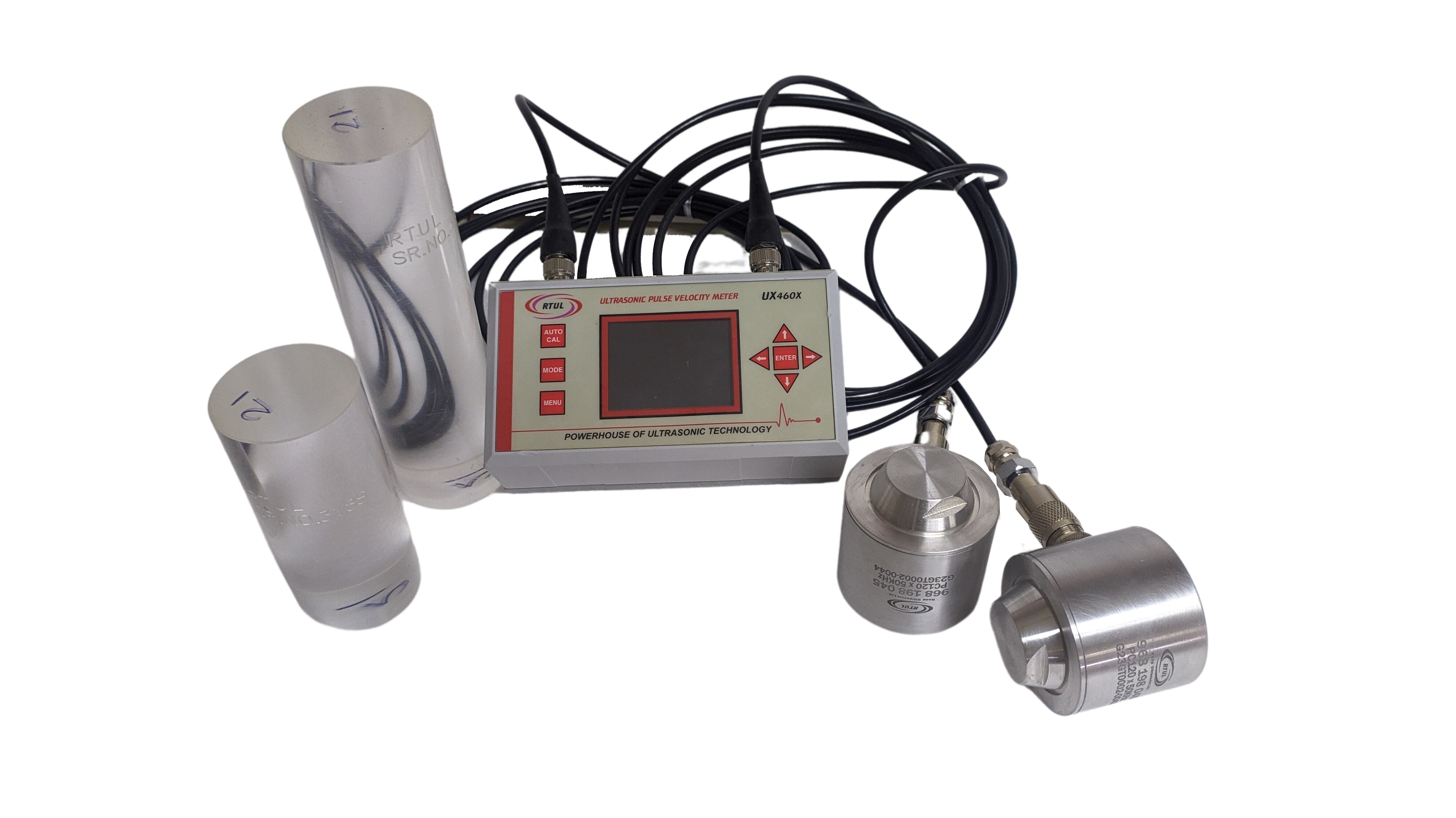Concrete is a ubiquitous material used for different infrastructure projects. Its strength and longevity depend heavily on its quality. This is where a concrete testing machine comes in. In the construction industry it plays a vital role in ensuring the structural integrity of concrete: be it in its fresh state (before hardening), molded cylinders, or precast beams.
Subjecting concrete samples to controlled stress and strain by these machines is essential. It can determine key properties like compressive strength, flexural strength, and elasticity. This data helps assess the concrete’s ability to withstand weight, bending, and other stresses it will encounter in its service life. Some professionals also call it the pulse velocity test of concrete.

This blog post discusses the need for a concrete testing machine if the problem goes beyond basic strength testing. Modern concrete testing machines are equipped with sophisticated capabilities. The current models are advanced and so are the techniques. With sound waves being sent through the concrete the travel time is measured precisely.
What does the pulse velocity test of concrete reveal?
The tomographic images can pinpoint specific issues.
Honeycombing: Voids within the concrete caused by improper compaction.
Cracking: These can be hairline fractures or larger structural weaknesses.
Low-quality concrete: Variations in the concrete mix can show up.
Size and shape of defects: The tomographic data provides the defect’s precise dimensions.
Limitations in collection of data paths can be eliminated by advanced pulse velocity test of concrete. Infrastructure experts prefer the new machines due to:
2-side access for direct path testing: This allows sound waves to travel directly through the suspect area, providing a clearer picture of the defect.
Corner testing for difficult geometry: Certain corners or complex shapes can be challenging for traditional testing methods. Advanced machines adjust these geometries of the concrete’s health.
Beam intersections: Precast beams often have complex geometries with intersecting sections. Specialized testing machines provide detailed data on the integrity of these crucial junctions.
The ability to perform advanced tests offers significant benefits to construction projects. Early detection of hidden defects allows for timely repairs, preventing potential structural failures. Tomographic data will optimize concrete mix designs, leading to stronger and more durable structures.
Today, concrete testing machines are no longer just tools for basic strength testing. Advanced features like ultrasonic pulse velocity testing and multi-directional data collection have transformed them into powerful diagnostic tools. These machines play a crucial role in ensuring the safety and longevity of our infrastructure.
RTUL Group is a leading manufacturer and supplier of non–destructive techniques and advanced concrete testing machine models. We help various global clients by offering ultrasonic machines and pulse velocity meters. We also specialize in offering onsite assistance if needed.
By partnering with us your project is assured of the right equipment for accurate testing. You can ask our technicians for sample concrete mix testing in the lab. For onsite jobs, we have highly accurate calipers and micrometers. This is why precise measurements are achieved.
RTUL Group’s experts provide guidance and the choice of the right testing equipment. We can also train your staff to use the machines effectively. Your quality control, measures begin with choosing the right partners and testing tools. Give us a chance to prove our credentials.
.png)
.png)
.png)